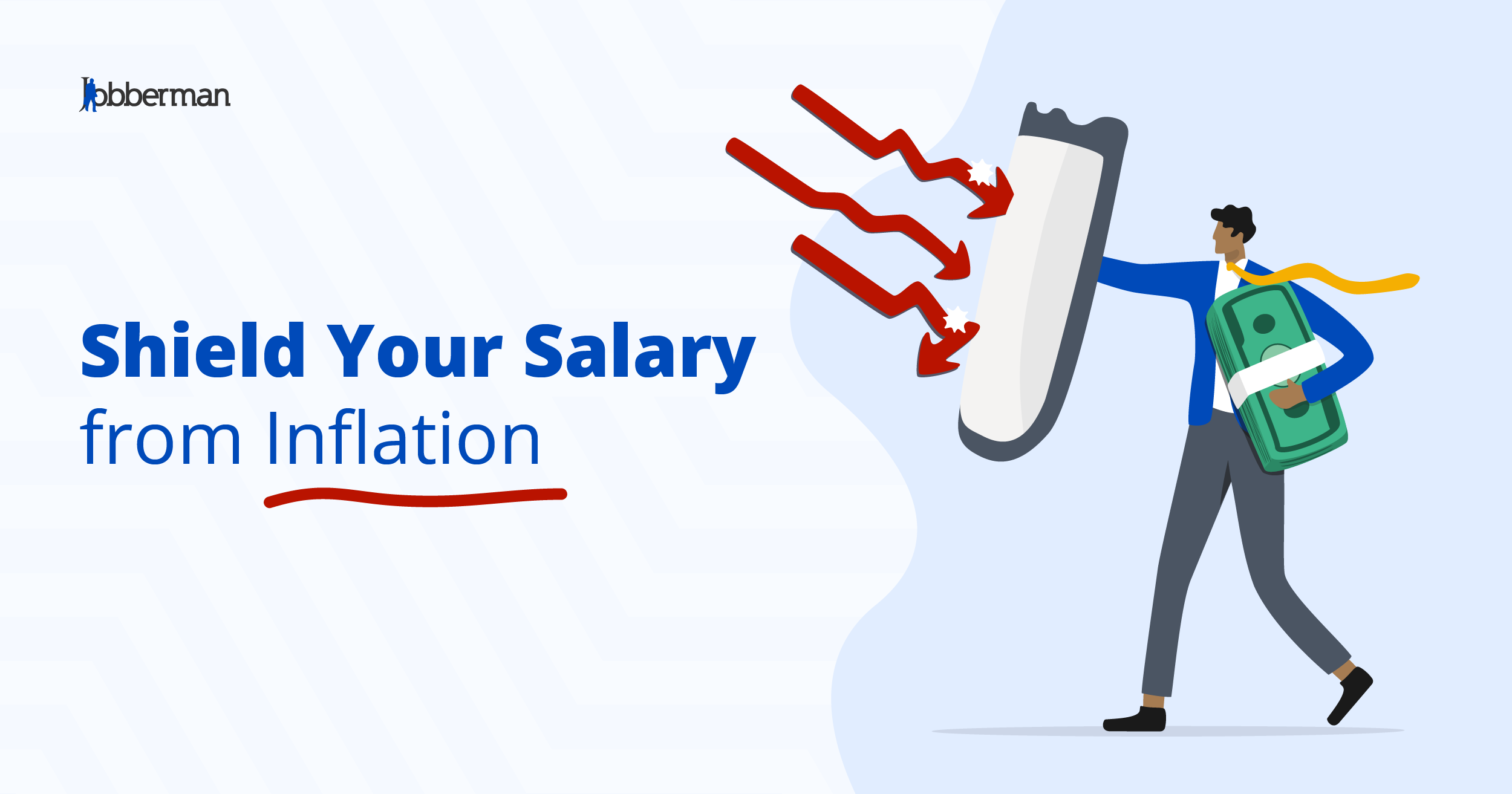Inflation is a gradual increase in the prices of goods and services over time. When inflation occurs, the purchasing power of a currency decreases, which means that you need more money to buy the same things you could have purchased for less money in the past. This can significantly impact your financial well-being, primarily if you rely on your salary to make ends meet.
For example, let’s say you earn a salary of N2,000,000 per year. If the inflation rate is 2%, the value of your salary will decrease by N20,000 over the course of a year. This means you would need to earn an additional N20,000 just to maintain the same purchasing power you had before the inflation. For some context, Compared to February 2022, Nigeria’s headline inflation rate in February 2023 was 6.21 % points higher, and inflation has continued to increase on a monthly basis.
If the inflation rate continues to rise, the value of your salary will continue to decrease, making it more challenging to keep up with expenses. Inflation can also lead to higher interest rates. This can make purchasing big-ticket items like homes and cars difficult, as the cost of borrowing may become prohibitive. Higher interest rates can also make it more challenging to save money, as the return on your savings may be lower than the inflation rate.
Furthermore, inflation can have a disproportionate impact on lower-income earners. This is because these individuals often spend more of their income on necessities like food, housing, and healthcare. When the prices of these goods and services rise, it can make it more difficult for these individuals to make ends meet. This can lead to a vicious cycle, where lower-income earners struggle to keep up with expenses, leading to further financial instability.
Overall, inflation can significantly impact your financial well-being if you do not try to get in front of it. By taking steps to protect your salary from inflation, such as investing in stocks, bonds, and mutual funds, creating a budget, paying off debt, diversifying your income streams, and planning for retirement, you can minimise the impact of inflation on your financial stability and ensure that you can maintain your purchasing power over the long term.
Let’s discuss some of the top personal finance tips to help you protect your salary from inflation.
Table of Contents
Manage Your Salary Wisely
One of the first key survival tips in a period of inflation is to adjust your standard of living to the prevalent economic conditions. Maintaining a status quo lifestyle with a salary hit by inflation isn’t a practical way of winning the financial war. Secondly, knowing where every income goes is another important step in managing your money well. Pay close attention to your expenditures, particularly when it comes to your personal expenses and then adjust appropriately. You should be able to account for every bit of your salary, whether you use tracking applications, spreadsheets, or even just a book and pen.
Attempt setting your finances on autopilot as well. It is a fantastic technique to keep to your spending plan and financial objectives. With your bank, you can set up automatic debits or bill payments.
By following this procedure, you can also ensure on-time payment of your bills and some extra for investments and savings.

Create a budget and stick to it.
Creating a budget can help you stay on track with your expenses and avoid overspending. By setting limits on your spending and prioritising your expenses, you can ensure you are not wasting your salary on unnecessary purchases.
To create a budget, start by tracking your expenses for a month or two and identifying where you can cut back. Then, create a plan for your monthly expenses and stick to it. Be sure to leave room for unexpected costs, such as car repairs or medical bills.
Invest in stocks, bonds, and mutual funds.
Investing in stocks, bonds, and mutual funds is one of the most effective ways to shield your salary from inflation. These investments outperform inflation over the long term and can help you grow your wealth over time. Investing a portion of your salary in these assets can protect your purchasing power and maintain financial stability.
However, it is essential to note that investing carries risk, and you should always research and consult with a financial advisor before making any investment decisions.
Keep an eye on interest rates.
Interest rates can significantly impact your salary and overall financial well-being. When interest rates are low, the value of your savings can decrease as inflation rises. On the other hand, when interest rates are high, you can earn more on your savings and protect your salary from inflation.
To stay on top of interest rates, it is essential to regularly check the news and monitor the Federal Reserve’s policies. Consider opening a high-yield savings account, offering higher interest rates than traditional ones.
Pay off debt

Avoiding debts altogether is essential to shielding your salary from inflation. Strive to resist the urge to purchase items on credit that won’t appreciate in value. If you can afford it, buying gadgets or other products outright is preferable to entering into interest-bearing instalment payment programs. Accumulating debt can lead to high-interest rates and negatively affect your relationship with financial service providers. Paying debts on time can help you avoid penalties and interest charges and maintain good credit, making it easier to obtain credit facilities in the future.
Paying off debt can also help you free up more of your salary for savings. When you have debt, a portion of your salary goes towards paying interest instead of building wealth. By paying off debt as quickly as possible, you can ensure that you use your money to its fullest potential.
Diversify your income streams.
Avoiding debts and paying them on time is essential for managing your finances. Accumulating debt can lead to high-interest rates and negatively affect your credit score. Paying debts on time can help you avoid penalties and interest charges and also maintain a good credit score, making it easier to obtain credit in the future.
Having multiple sources of income can help you protect your salary from inflation and reduce your reliance on a single job or source of income. Consider starting a side hustle or freelancing on the side to supplement your salary and create additional income streams.
By diversifying your income, you can reduce your financial risk and protect your salary from inflation.
Shielding your salary from inflation is a crucial financial strategy to help you maintain your purchasing power over time. If you want an easy head start on setting up financial goals and achieving them, sign up for the Jobberman Financial Literacy Course, where you will learn practical financial tips with scenarios and case studies that you can begin implementing right away.
Furthermore, to protect your salary from the effects of inflation, investing in assets that appreciate in value over time, such as stocks, real estate, and other income-generating investments, is essential. Additionally, consider negotiating for inflation-adjusted pay raises or seeking job opportunities offering competitive salaries and benefits. Taking proactive steps to shield your salary from inflation can ensure financial security and long-term financial success.





